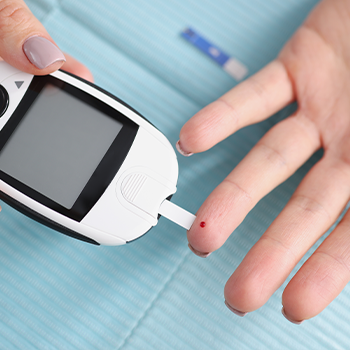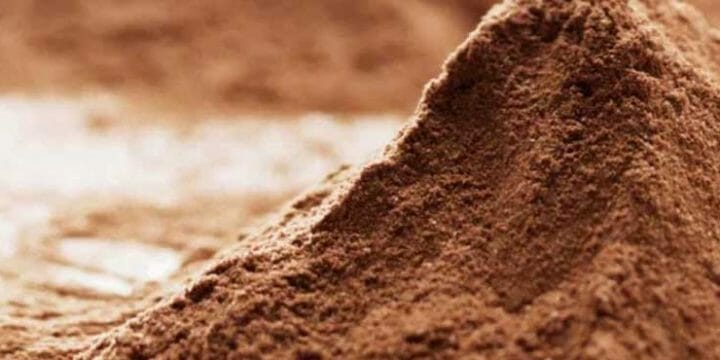As a personal trainer, I often explore natural ways to enhance health and fitness. One such example is fenugreek, a plant with a nutty flavor, commonly used in Eastern cuisine and traditional Chinese medicine. It's celebrated for its health benefits, which are particularly relevant to my field.
These benefits include reducing inflammation and aiding in fat loss. Most notably, fenugreek is recognized for its potential to increase testosterone production, a key factor in muscle development and overall vitality.
Intrigued by its impact on low testosterone levels, I've collaborated with medical researchers to delve deeper into its effects. This partnership aims to provide a clearer understanding of how fenugreek can be integrated into fitness and wellness routines.
Quick Summary
- To increase testosterone levels, incorporating fenugreek into your diet can be an effective natural method.
- Fenugreek not only boosts testosterone but also aids in fat loss, improves sexual function, and helps regulate blood sugar levels.
- According to National Institute of Health clinical trial, fenugreek raised leg press strength from 73.41 kg to 80.45 kg and improved testosterone levels in males over 8 weeks of training.
- In my view, fenugreek stands out as a versatile and natural supplement for enhancing overall health and testosterone levels.
How Does Fenugreek Impact Testosterone?

Fenugreek supplements have been shown to increase free testosterone levels by inhibiting enzymes like aromatase and 5-alpha-reductase.
As someone who has personally experimented with fenugreek supplements, I've noticed a notable increase in my free testosterone levels.
This aligns with the scientific understanding that fenugreek's furostanolic saponins play a key role in boosting healthy testosterone production. My experience echoes the research findings, adding a practical perspective to the theoretical knowledge.
How It Works
These substances work by inhibiting enzymes, like aromatase and 5-alpha-reductase, which consume testosterone and turn it into other hormones.
One clinical trial by the National Institute of Health (NIH) showed that fenugreek supplementation led to a significant increase in leg press strength from 73.41 kg to 80.45 kg, alongside improvements in testosterone levels and body fat reduction in healthy males over 8 weeks of resistance training [1].
"Fenugreek is a powerful medicinal plant. It has been used throughout history for its health-promoting qualities and natural ability to treat ailments ranging from digestive issues to skin conditions."
- Jillian Kubala, MS, RD, Registered Dietitian
8 Health Benefits Of Fenugreek

1. Improves Sexual Function
Testosterone is the primary male sex hormone that determines male libido and sex drive.
As fenugreek supplementation has been shown to stimulate testosterone production, it can be used as a natural remedy to boost libido and treat erectile problems.
"Clinical trials show that participants who took fenugreek seeds (scientifically known as Trigonella foenum-graecum) regularly resulted in “significant increases in free testosterone in the control group… as well as sexual arousal and desire compared to the placebo group”.
- Amanda Rao, Medical Researcher
2. Increasing Fat Loss
My experience with fenugreek supplements includes a marked decrease in appetite and enhanced fullness.
This aligns with fenugreek's role in weight loss, aiding in better calorie management. It regulates hunger hormones and aids digestion, thanks to its fiber content.
Consuming fenugreek seeds with water can activate fat-burning in adipose tissues, helping to prevent weight gain.
3. Regulating Blood Sugar Levels and Circulation

Fenugreek supplements help stabilize blood sugar, making them beneficial for diabetics and related conditions.
In a study involving 60 patients, those who consumed 10 gm of fenugreek seeds daily experienced a significant reduction in fasting blood glucose levels by the 5th month and in HbA1C levels by the 6th month, as per NIH research [2].
ScienceDirect notes their role in regulating cholesterol, reducing artery clogging, and thus lowering cardiovascular disease risk [3]. Fenugreek seeds, containing 45.4% dietary fiber, have been shown to help stabilize blood sugar, making them beneficial for diabetics and related conditions.
Fenugreek offers a natural method for managing blood sugar and supporting heart health.
4. Boosting Sperm Quality and Volume
As male testicles are responsible for producing both sperm and testosterone, it's no surprise that there’s also a large correlation between the two.
Researchers from the Advances in Life Science and Technology have noted that consuming fenugreek seeds helps improve low testosterone levels and the volume and quality of sperm [4].
It also indirectly helps further boost T levels, as men who have low testosterone levels are also found to have lower volumes of sperm.
5. Improving Mood and Energy

Feeling irritable or moody?
Fenugreek supplements can alleviate mood and energy fluctuations due to hormonal imbalances.
NIH research indicates that men with low testosterone often experience emotional distress. Fenugreek seeds can balance hormones and boost energy levels [5].
6. Accelerating Hair Growth
If a man’s testosterone levels drop too low, it can lead to side effects such as the thinning of hair follicles. This can further lead to premature hair loss and balding, as a result of age-related symptoms.
The use of fenugreek supplements can help offset these issues. A 2006 study from ResearchGate has discovered that phytoestrogen found in fenugreek seed powder can increase body hair growth and lead to positive results [6].
7. Improving Strength and Endurance

Many seek to boost testosterone for increased muscle strength.
A National Library of Medicine study showed that fenugreek extract significantly enhanced upper body strength and endurance [7].
Higher testosterone levels, linked to greater strength and endurance, can be achieved with fenugreek supplements, improving body composition, muscle, and bone mass.
8. Reducing Inflammation and Pain
Inflammation has been shown to have an adverse negative reaction on the body in many ways.
Excess inflammation can manifest in physical ailments such as arthritis, muscle and joint pain, and even asthma.
According to NIH, Fenugreek is rich in linolenic acids that act as an anti-inflammatory agent to combat these ailments [8]. This is very beneficial for exercise, as it can reduce muscle inflammation and speed up recovery.
What Are The Side Effects Of Fenugreek?
Excessive fenugreek can cause digestive and cardiovascular side effects like blood sugar drops, diarrhea, nausea, and bloating.
Be cautious if you're on medications affecting blood sugar. Lactating or pregnant women should avoid fenugreek.
Always consult a healthcare provider before use to avoid complications. Alternatively, consider the testosterone boosters reviewed in this article.
Fenugreek vs. Other Natural Testosterone Boosters
When comparing fenugreek to other testosterone boosters, consider their effectiveness, safety, and scientific evidence.
- Tribulus Terrestris: This herb's impact on testosterone is mixed, according to WebMed studies. Some show increased testosterone and sexual function in men with low levels, others see little change [9].
- Ashwagandha: Known for adaptogenic effects, NIH research suggests it boosts testosterone, vitality, reduces stress, and aids muscle recovery in men [10].
- D-Aspartic Acid: Affecting luteinizing hormone, crucial for testosterone production, National Library of Medicine studies indicate it raises testosterone, particularly in men with low testosterone or fertility issues [11].
- Zinc and Magnesium: Essential for testosterone, zinc deficiency can lower levels. NIH notes ZMA supplements, combining zinc, magnesium, and vitamin B6, are popular among athletes for enhancing testosterone and performance [12].
FAQs
Can You Take Fenugreek Every Day?
It is safe to take fenugreek daily in moderate doses as long as you do not exceed 2000 mg per day.
How Long Does It Take For Fenugreek To Impact Testosterone Levels?
People taking fenugreek can expect to wait up to 12 weeks before seeing significant results on their testosterone levels.
Does Fenugreek Help With Erectile Dysfunction?
Fenugreek has been shown to help men that suffer from ED. Taking 600 mg a day can help improve conditions associated with ED.
When Should I Take Fenugreek For Weight Loss?
The best time to take fenugreek is early in the morning. This allows the properties of the plant to be absorbed into the body throughout the day, which also assists with digestion.
References:
- https://www.ncbi.nlm.nih.gov/pmc/articles/PMC6191980/
- https://www.ncbi.nlm.nih.gov/pmc/articles/PMC5954247/
- https://www.sciencedirect.com/science/article/pii/S1658077X15301065
- https://citeseerx.ist.psu.edu/viewdoc/download
- https://www.ncbi.nlm.nih.gov/pmc/articles/PMC3955423/
- https://www.researchgate.net/publication/251923543_Fenugreekmicronutrients_Efficacy_of_a_food_supplement_against_hair_loss
- https://www.ncbi.nlm.nih.gov/pmc/articles/PMC2978122/
- https://www.ncbi.nlm.nih.gov/pmc/articles/PMC4980935/
- https://www.webmd.com/vitamins/ai/ingredientmono-39/tribulus
- https://www.ncbi.nlm.nih.gov/pmc/articles/PMC6438434/
- https://www.ncbi.nlm.nih.gov/pmc/articles/PMC5340133/
- https://www.ncbi.nlm.nih.gov/pmc/articles/PMC2129161/
About The Author
You May Also Like






